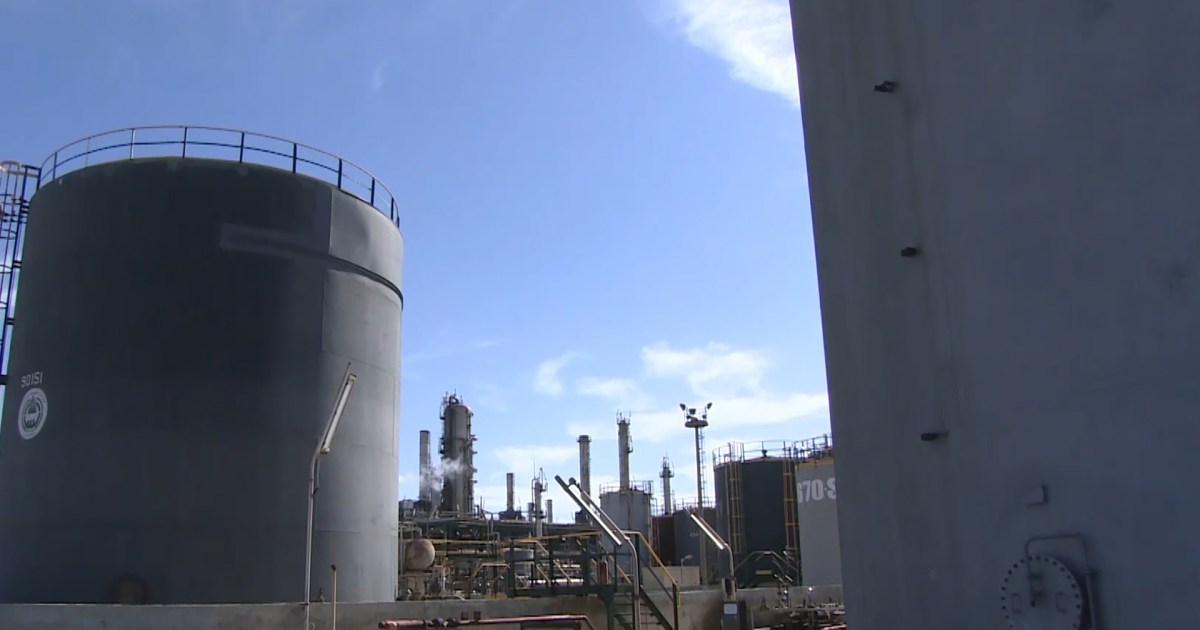"Sorry, my father, the money is forged." With this sentence, an Egyptian barber replied to a new customer who had just come from the city of Tripoli, while I heard from another Libyan that "this money we do not use here in Misurata, this is printed in Russia", refusing to take the forged "banknotes" Only after replacing it with another that has been printed by the internationally recognized reconciliation government.
The above is a hadith that one cannot hear in any of the Libyan cities except Misurata.
The two currencies are traded on the Libyan market without restrictions except for the city of Misurata, which Al Jazeera polled the opinions of some of its residents, as one of the residents says, "We consider every currency printed outside the Al-Wefaq government’s decision to be forged."
He added that "banks in Libya are not recognized by them, including the capital, Tripoli, only money exchanges in the areas of the Libyan West deal and shops, but with the exception of Misurata."
Why Misurata?
Misurata is the only city in all of Libya whose residents refuse to deal in the printed currency in Russia for sale and purchase for several reasons, according to one of the money changers whom Al Jazeera Net met in its place.
This cashier explains by saying, "A printed currency in Russia is forbidden for us. In a previous period we used to spend this currency and send it to the eastern region - Benghazi - to exchange it and trade it, but things changed after trying to Haftar to invade Tripoli, this is a counterfeit currency, as it helps Haftar in the war and causes problems Another economic. "
Some citizens of Misurata go to religious considerations, and they say that the Libyan Fatwa Department was clear in refusing to deal with the printed currency in Russia, which is agreed with the economic analyst in Misurata, Mukhtar Al-Jadeed, who told Al-Jazeera Net that "there is a serious stand by the people of Misurata, instructions have been issued On the authority of the Fatwa Department to prevent the circulation of the printed currency outside the country, and Misurata has positively dealt with the fatwa to protect their country's economy.
The beginning of the dispute
The parallel government in the internationally unrecognized Libyan East printed a new Libyan currency in stages from 2015 to 2020 with Russian support of about 12 billion Libyan dinars (8.5 billion dollars), and flooded the Libyan market by about 90% of them, which led to an increase in the volume of inflation in The country and the impact of the dinar exchange rate, according to economic analyst Mokhtar Al-Jadid, who considered that the currency printed in Russia is the reason for the depreciation of the Libyan currency against the dollar.
"As long as the citizen uses the counterfeit currency printed in Russia, the dollar can reach 10 dinars or even higher," he said.
Warnings
The exchange offices of the city of Misurata hangs in their shops signs warning against the use of the currency that is described as fraudulent, and differences were clarified between the currency acceptable to deal with the currency that was printed in Russia, including the signature of the Governor of the Central Bank of Libya and the serial number of banknotes and the color of the edition.
Misurata residents say that their refusal to trade the printed currency in Moscow is not only because of its negative impact on the Libyan economy and its damage to the dinar of their state, but also for political considerations to strike at Haftar's military project seeking to return the dictatorship to Libya, they say.
Libya is witnessing a major financial crisis and a shortage of hard currency due to the stoppage of oil production and its export abroad 6 months ago, and also as a result of the sharp drop in oil prices globally.
The National Oil Corporation estimates Libya's losses from the closure of fields and export ports at more than $ 6 billion since the beginning of this year.

